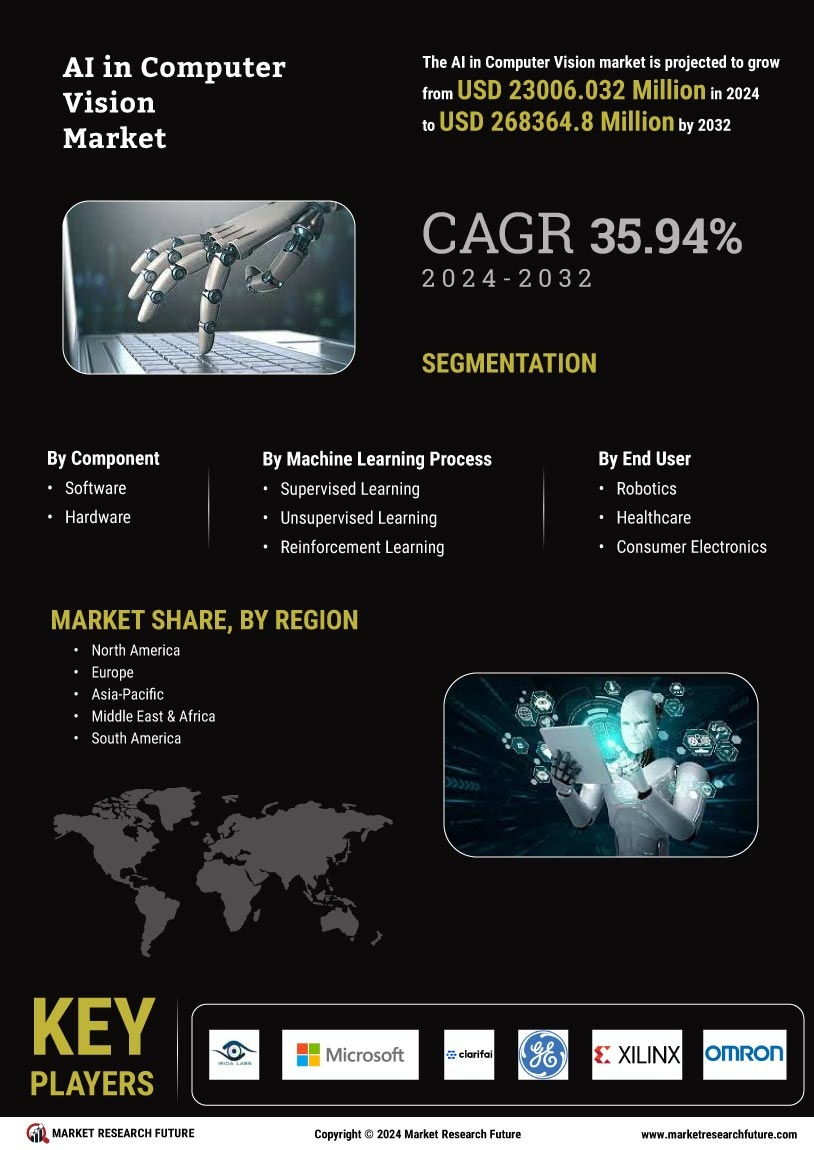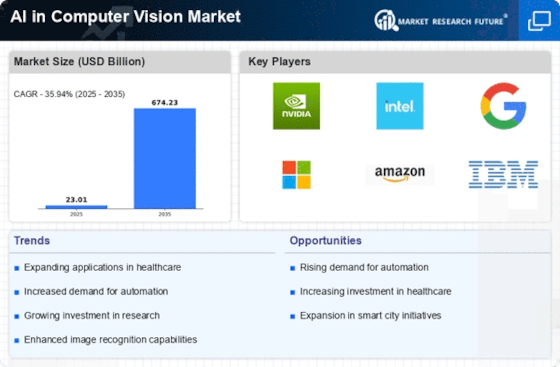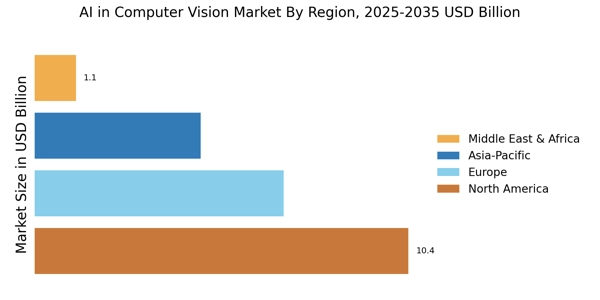Surge in E-commerce
The rapid expansion of e-commerce platforms is significantly influencing the AI in Computer Vision Market. As online shopping continues to gain traction, retailers are increasingly adopting computer vision technologies to enhance customer experiences. For example, visual search capabilities allow consumers to find products using images, thereby streamlining the shopping process. Market data suggests that the e-commerce sector is anticipated to reach a valuation of several trillion dollars in the next few years. This growth presents a substantial opportunity for AI in Computer Vision Market, as businesses seek to leverage visual analytics for inventory management, personalized marketing, and improved customer engagement. Consequently, the demand for innovative computer vision solutions is likely to rise, further propelling the market forward.
Healthcare Applications
The application of AI in Computer Vision Market within the healthcare sector is witnessing remarkable growth. Computer vision technologies are being utilized for medical imaging, diagnostics, and patient monitoring, enhancing the accuracy and efficiency of healthcare services. For instance, AI algorithms can analyze medical images to detect anomalies, such as tumors, with a high degree of precision. The healthcare AI market is projected to grow significantly, with estimates suggesting a potential market size exceeding 100 billion dollars by the end of the decade. This trend indicates a robust demand for computer vision solutions that can assist healthcare professionals in making informed decisions. As the healthcare industry continues to embrace digital transformation, the integration of AI in Computer Vision Market is expected to be a key driver of innovation and improved patient outcomes.
Integration with Robotics
The integration of AI in Computer Vision Market with robotics is becoming increasingly prevalent. This synergy enhances the capabilities of robots, allowing them to perceive and interact with their environment more effectively. For instance, the use of computer vision in robotic arms enables precise manipulation of objects, which is crucial in manufacturing and assembly lines. According to recent estimates, the robotics sector is projected to grow at a compound annual growth rate of over 20% in the coming years. This growth is likely to drive demand for advanced computer vision technologies, as robots require sophisticated visual processing to operate autonomously and efficiently. As industries seek to optimize operations, the integration of AI in Computer Vision Market with robotics is expected to play a pivotal role in shaping the future of automation.
Enhanced Security Solutions
The increasing need for enhanced security measures is driving the AI in Computer Vision Market. Organizations across various sectors are adopting computer vision technologies for surveillance, access control, and threat detection. These systems utilize advanced algorithms to analyze video feeds in real-time, identifying suspicious activities and potential security breaches. The AI in Computer Vision is projected to grow substantially, with investments in AI-driven surveillance systems expected to rise significantly. This trend suggests that businesses and governments are prioritizing safety and security, leading to a heightened demand for computer vision solutions. As a result, the AI in Computer Vision Market is likely to experience accelerated growth, as organizations seek to implement cutting-edge technologies to safeguard their assets and personnel.
Automotive Industry Innovations
The automotive industry is undergoing a transformation, with AI in Computer Vision Market playing a crucial role in this evolution. Advanced driver-assistance systems (ADAS) rely heavily on computer vision technologies to enhance vehicle safety and automation. Features such as lane detection, pedestrian recognition, and adaptive cruise control are becoming standard in modern vehicles. The automotive sector is projected to invest billions in AI and computer vision technologies over the next decade, indicating a strong commitment to innovation. This investment is likely to drive advancements in autonomous driving capabilities, as vehicles increasingly rely on visual data to navigate complex environments. Consequently, the AI in Computer Vision Market is expected to thrive as automotive manufacturers seek to integrate sophisticated visual processing systems into their offerings.

















